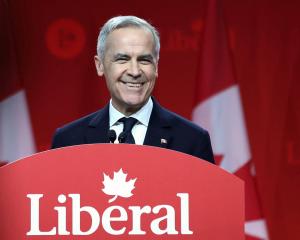After 50 hours of annual plan meetings last year, the Dunedin City Council managed to achieve a reduced rate increase for the following financial year of a mere .9% down from an anticipated 7.8%.
Ratepayers, anxiously observing this week's commencement of the annual plan process, ought not on this record to expect a great deal from a council which has been as profligate as any in the city's history.
Indeed, the question can validly be raised as to whether the annual plan hearings are merely a statutory and expensive tranquilizer used to allay ratepayer grievance, or a safety valve enabling citizens to express their exasperations; or a platform for councillors to dance to a re-election tune - or all three.
After all, the council and staff have already spent months planning the draft budget; the council will this week conduct private workshops, and there will be a public meeting tomorrow, with a final version of the draft annual plan to be delivered for consideration at public hearings in May.
Given the debt load the council has already agreed for the next decade, and the fact of the council's rates income rising by an estimated 61.3% in that time, it might be thought that there is very little room for the council to manoeuvre its spending habits downwards, an impression reinforced by recent comments from Mayor Peter Chin.
But there is no question that it must make a serious attempt to do just that.
The draft at the moment proposes an increase in rates for the next financial year of 7.3% - considerably more than the annual rate of inflation and far above the wage increases most ratepayers have received this year (if at all) - together with increases in charges across a whole range of activities, notably in council housing.
As we have said before, Dunedin has no realistic choice other than to cut its cloth to match its current and predicted circumstances.
The council's own finance and corporate support general manager has observed that any new spending during the next decade has to be "reined in" because of the total debt, which is forecast to peak in the next financial year at $360 million.
The two main reasons for rate increases on the scale predicted are the debt servicing costs and the funding of depreciation.
The debt servicing costs are a consequence of the council's capital spending projects, of which only some may be considered to be essential; and the funding of depreciation is a requirement, one that can hardly be challenged.
Of the capital expenditure on projects such as water and sewage services improvements and roading improvements, progress on such basic needs is essential.
On some of the others (but by no means exclusively), such as the stadium, the Settlers Museum, and the Dunedin Centre, suggestions have been made that these should be deferred or delayed.
But really only one large project is remotely within the prospect of a delay, namely the Dunedin Centre, where a tender has yet to be accepted.
But even this action would now be futile, having effectively been trumped by the council's announcement that the Town Hall would be closed for a year.
Bookings have therefore been cancelled; other arrangements have been made.
Annual plan consideration is, therefore, realistically pointless.
Many ratepayers will be under increased financial pressure just to pay the rates this year; Dunedin is, after all, a city with an unusually large proportion of residents who are living on fixed or state-provided incomes.
Householders, of necessity, must examine their budgets and trim excessive costs wherever they can be found: so too must the council.
There is some superficial evidence that managers have been asked to justify or trim their departmental increases, but such scrutiny has been "in house".
Ratepayers have little idea whether the effort has been self-serving or genuine, and in a council with a history of failing to curb rates increases and rising charges, of heavier drawing down from debt-laden council-owned companies, and of encouraging ballooning liabilities, their frustration is unlikely to be assuaged by the present regime.
The annual plan hearings may see a corner or two of the carpet lifted but we doubt there will be the appropriately public critical examination of sacrosanct spending areas.
There remains a suspicion of little real incentive for senior managers to reduce staff numbers in these straitened times, decrease the size of their empires, or do much more to justify their existence and their excessive pay.
Certainly, councils cannot stand still for they owe to the citizens present and future at least an aspiration of progress; but with progress must surely come prudence.













